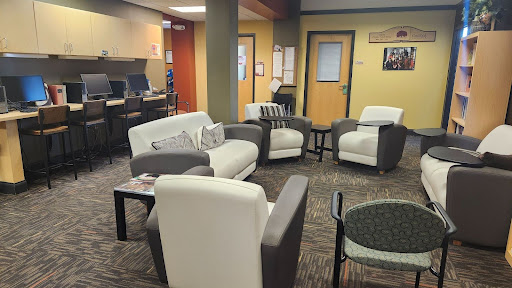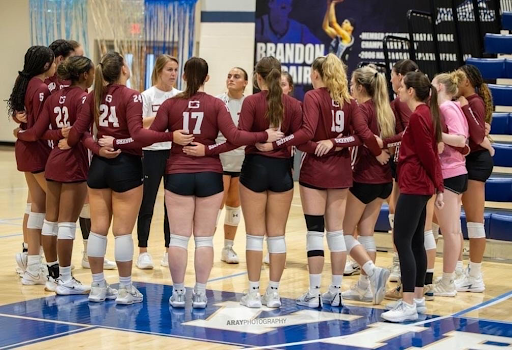The Advancing Excellence capital campaign hit its $60 million goal seven months early.
“Thank you to the many donors whose gifts, large and small, have helped us reach this milestone,” said President and Professor of Political Science Kent Chabotar. “Your generous support benefits students not only today, but for decades to come.”
Kate Hood, assistant to the vice president for advancement, explained the capital campaign’s importance.
“The capital, or comprehensive fundraising campaign, is a vehicle for focusing attention upon the needs and aspirations of an educational community,” said Hood in an email interview. “A campaign is thus an important event in the life of any institution striving for greater financial stability and excellence.”
The campaign’s success can be attributed to the hard work of many.
“The campaign had strong engagement by the board of trustees as donors, as well as a strong campaign steering committee made up of key individuals — trustees, alumni and donors — all of whom helped engage other donors to make gifts and commitments to the campaign,” said Vice President for Advancement Mike Poston via email interview.
The original goal was $100 million, according to a philanthropic market study completed by Campbell & Co. from Chicago.
However, the College’s first strategic long-range plan called for $75 million.
“The study recommended a goal not higher than $75 million and preparation toward engaging our alumni and key donors, with the intent of strengthening the involvement of those alumni in the philanthropic processes,” said Poston.
“The campaign was divided into a $60 million primary goal, followed by a $15 million bridging campaign focused on building the endowment for students, faculty and programs.”
The bridging campaign is underway and runs through June 30, 2014, when Chabotar will step down as president.
Advancing Excellence included many on-campus visits with alumni and donors and often involved faculty and student participation.
“We set about not only to do face-to-face engagement on campus with key donors, but also with donors, alumni and friends of the College in their homes and their businesses, in order to best captivate their interest in supporting and investing in students’ lives,” said Poston.
The path to success, however, is not always easy.
“The struggles are to continuously build the pipeline of donor prospects and engage donors in the meeting of students and faculty to give context to the possibilities financial support could provide,” said Poston. “The challenges come in finding the right people with the passion to engage in supporting our strategic priorities.”
The bridging campaign aims to expand endowments for scholarships, faculty support, innovation and upgraded facilities.
“(In general), the bulk of the campaign supports students’ scholarships and will continue to do so,” said Poston. “The second largest portion of it has gone toward endowing programs and current use of money for program support of the College such as the Center for Principled Problem Solving, the Friends Center’s programs, library programs and enhancing the facilities on campus.”
Other changes include renovations of Archdale Hall, Founders Hall and the Armfield Athletic Complex, along with plans to renovate Mary Hobbs Hall.
And the campaign’s plans do not stop there.
“We have a commitment to an endowed chair within the Psychology Department, several commitments for faculty development through gifts to Political Science … to Biology through a … gift matching program that will provide endowment to Biology for … faculty development, scholarships and program endowment,” said Poston.
Dana Professor of Biology and member of the Advancing Excellence campaign Lynn Moseley praised the campaign’s success.
“Guilford has needs in all those areas, and by completing the first phase of the capital campaign successfully and early, we have made good progress in addressing those needs,” said Moseley via email.




